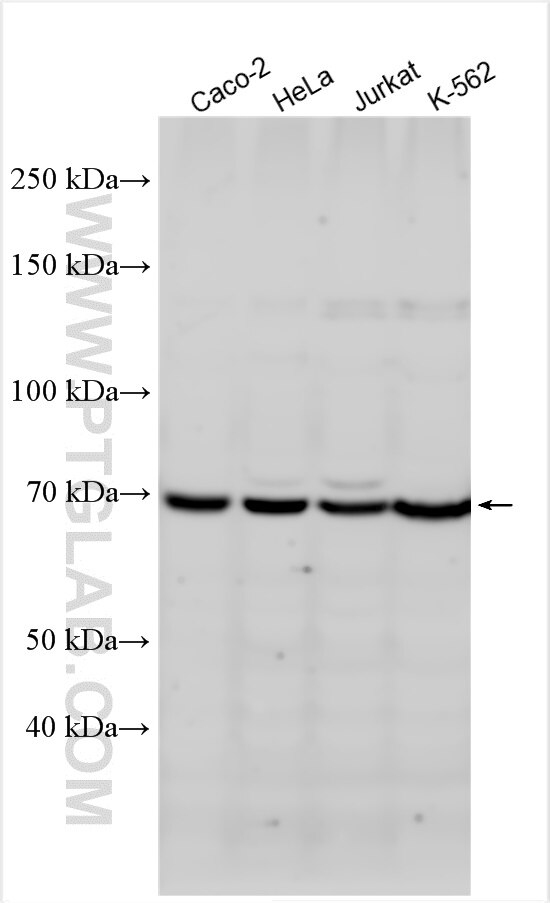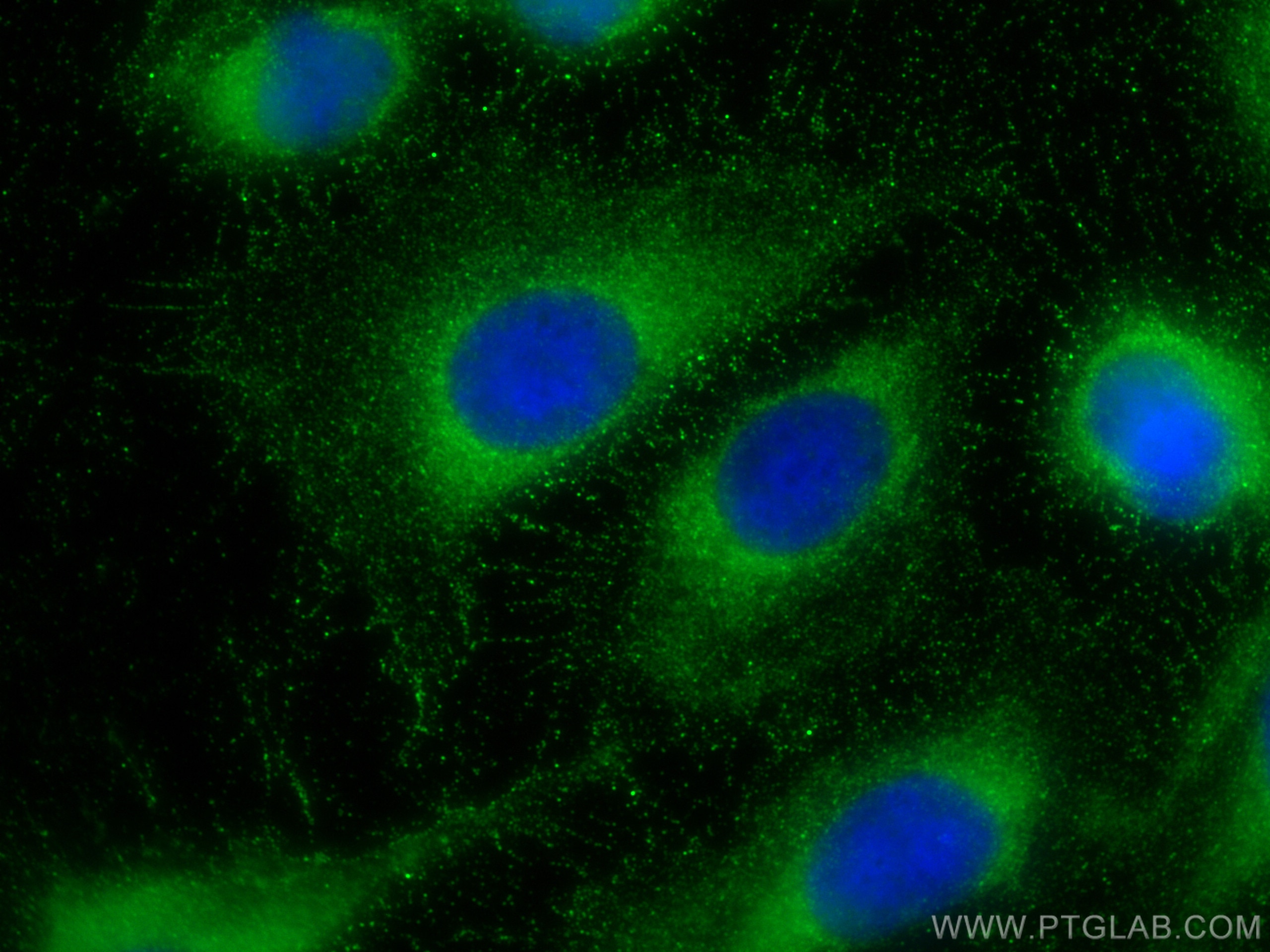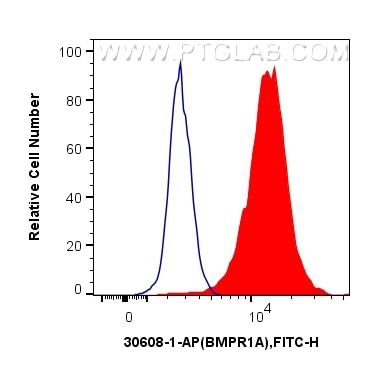BMPR1A Polyclonal antibody
BMPR1A Polyclonal Antibody for WB, IF, FC, ELISA
Host / Isotype
Rabbit / IgG
Reactivity
Human
Applications
WB, IF, FC, ELISA
Conjugate
Unconjugated
Cat no : 30608-1-AP
Synonyms
Validation Data Gallery
Tested Applications
| Positive WB detected in | Caco-2 cells, HeLa cells, Jurkat cells, K-562 cells |
| Positive IF detected in | U2OS cells |
| Positive FC detected in | Jurkat cells |
Recommended dilution
| Application | Dilution |
|---|---|
| Western Blot (WB) | WB : 1:500-1:2000 |
| Immunofluorescence (IF) | IF : 1:200-1:800 |
| Flow Cytometry (FC) | FC : 0.40 ug per 10^6 cells in a 100 µl suspension |
| Sample-dependent, check data in validation data gallery | |
Product Information
30608-1-AP targets BMPR1A in WB, IF, FC, ELISA applications and shows reactivity with Human samples.
| Tested Reactivity | Human |
| Host / Isotype | Rabbit / IgG |
| Class | Polyclonal |
| Type | Antibody |
| Immunogen | BMPR1A fusion protein Ag32959 相同性解析による交差性が予測される生物種 |
| Full Name | bone morphogenetic protein receptor, type IA |
| Calculated molecular weight | 532 aa, 60 kDa |
| Observed molecular weight | 68 kDa |
| GenBank accession number | BC028383 |
| Gene symbol | BMPR1A |
| Gene ID (NCBI) | 657 |
| Conjugate | Unconjugated |
| Form | Liquid |
| Purification Method | Antigen affinity purification |
| Storage Buffer | PBS with 0.02% sodium azide and 50% glycerol pH 7.3. |
| Storage Conditions | Store at -20°C. Stable for one year after shipment. Aliquoting is unnecessary for -20oC storage. |
Background Information
BMPR1A (Bone morphogenetic protein receptor type-1A) is also named as ACVRLK3, ALK3 and SKR5. BMPR1A is an essential receptor for BMP signaling (PMID: 26279380). BMPR1A is necessary for chondrogenesis and osteogenesis (PMID: 32764110). BMPR1A is a cell surface marker of human SuSCs (PMID: 33658353).
Protocols
| Product Specific Protocols | |
|---|---|
| WB protocol for BMPR1A antibody 30608-1-AP | Download protocol |
| IF protocol for BMPR1A antibody 30608-1-AP | Download protocol |
| FC protocol for BMPR1A antibody 30608-1-AP | Download protocol |
| Standard Protocols | |
|---|---|
| Click here to view our Standard Protocols |




